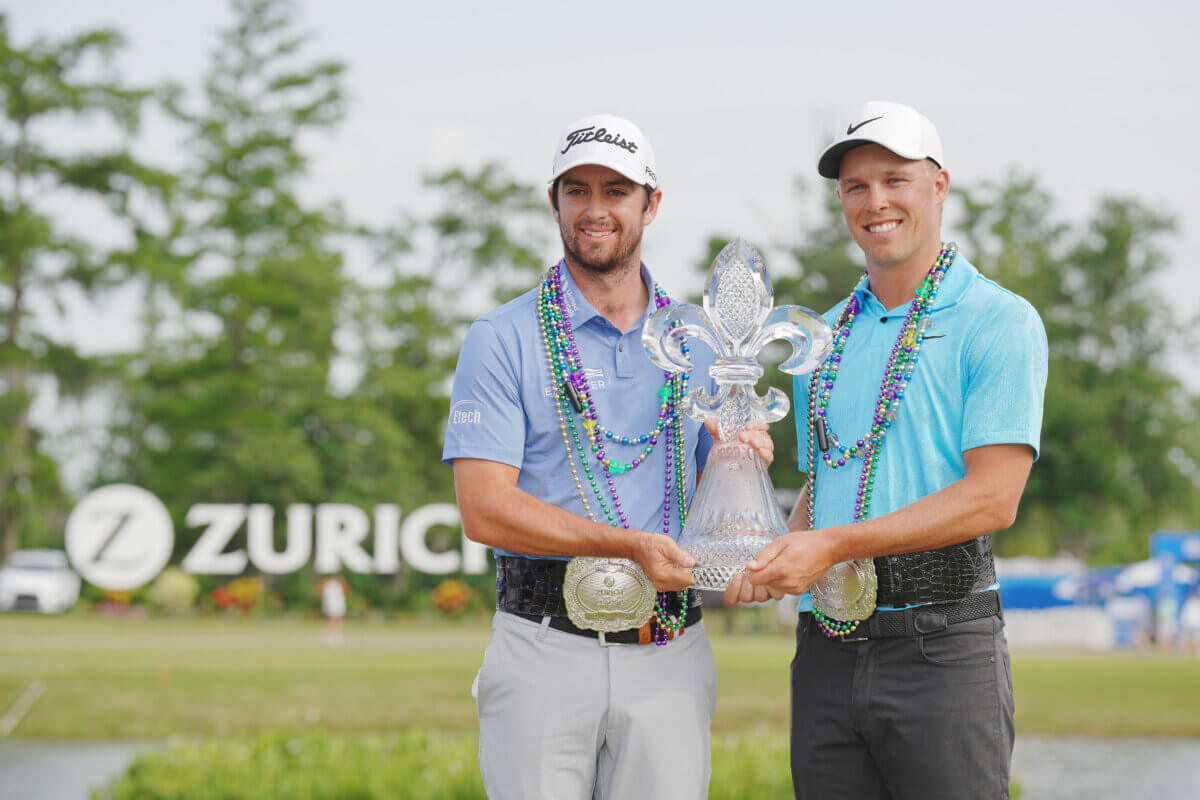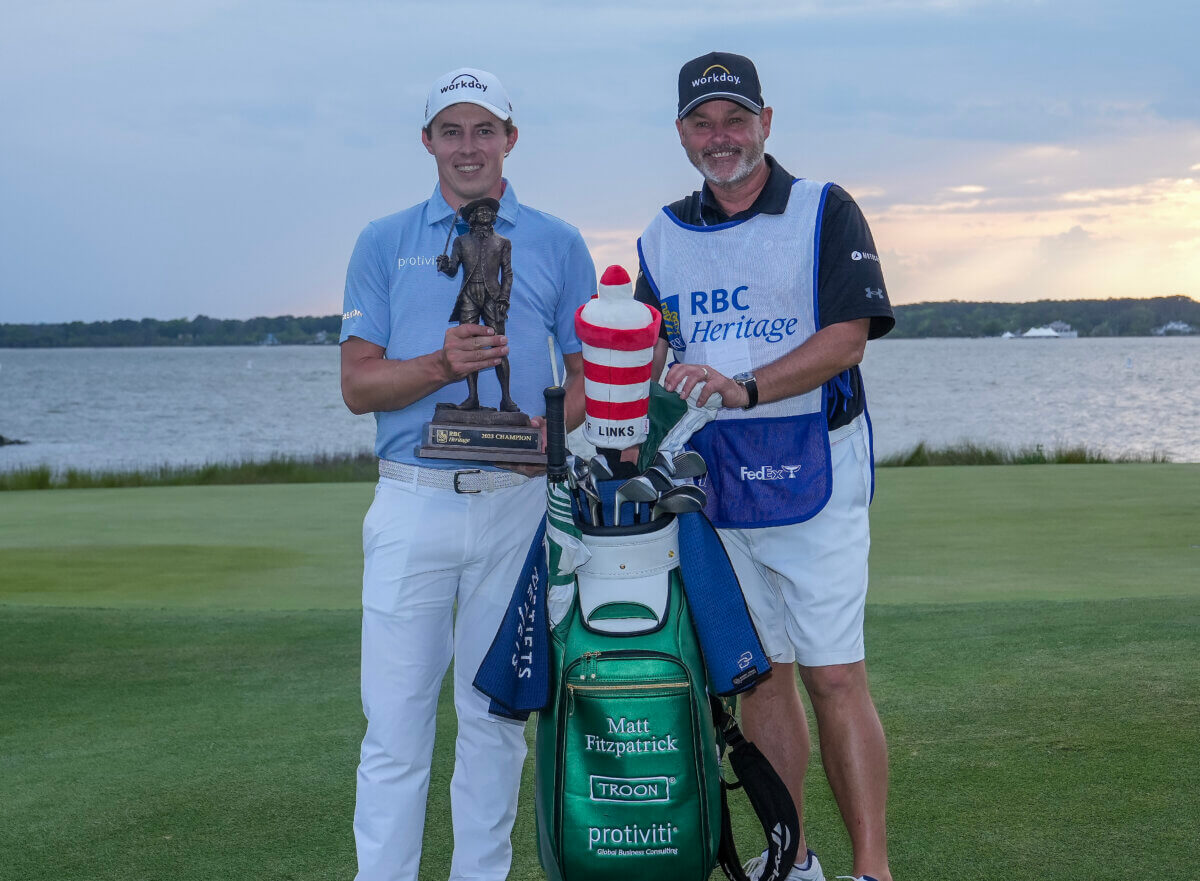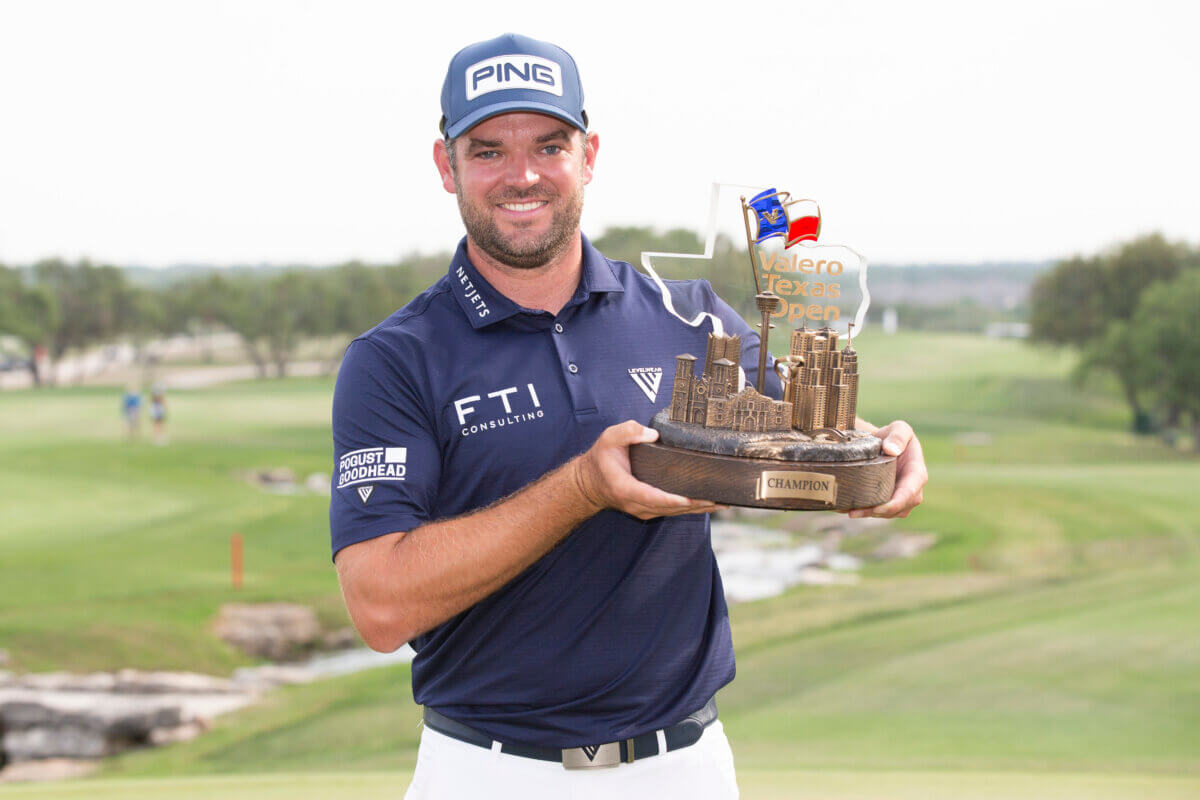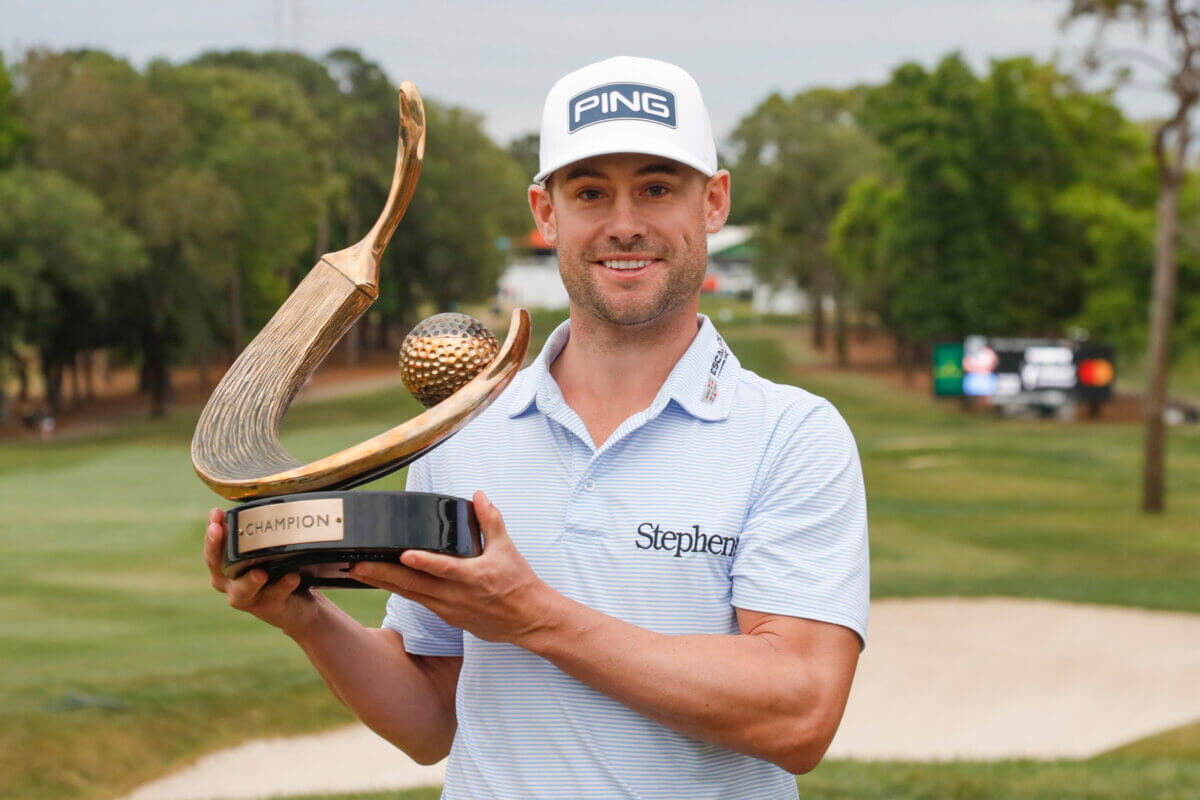Jay Delsing, John Perles go from college teammates to player/caddie to radio show co-hosts
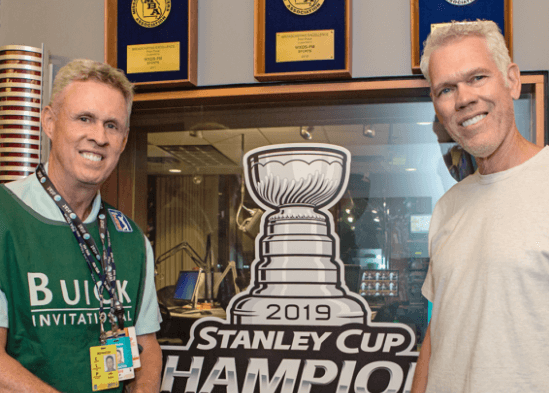
Jay Delsing met John Perles in 1979 when the UCLA men’s golf team was about to become loaded with future PGA Tour talent.
They played alongside Corey Pavin, Steve Pate, Tom Pernice Jr. and Duffy Waldorf, who all won on the PGA Tour. Even their coach, Eddie Merrins – the “Little Pro” – was a Hall of Famer.
These Bruins weren’t so bad in college, either. The 1982 UCLA team won 13 of 20 tournaments and was the nation’s top-ranked team.
“We are in the discussion for best college team of all time,” Delsing said. “The Wake Forest boys get a little sensitive when we bring that up.”
PODCAST ARCHIVE: Miss an episode? Click here to catch up on all our Caddies United podcasts
And rightly so. Not only did the ’82 UCLA team finish a disappointing sixth in the NCAA Championships, the Wake Forest squads of the mid-1970s that included such stars as Curtis Strange and Jay Haas won consecutive national titles.
Delsing and Perles pursued professional careers after leaving UCLA, but they have continued to team up – from time to time – in the name of golf.
Delsing, a two-time All-America at UCLA, spent 25 years on the PGA Tour, spanning 565 events. The 6-foot-5 native of St. Louis didn’t win on the PGA Tour, but had a pair of runner-up finishes and earned more than $3.6 million.
Perles spent five years playing professionally in Canada and Europe and on mini tours before giving up the chase. He went into the manufacturing business, where he made his mark selling bag tags, green repair kits and other golf accessories.
“We became the largest in the world at selling those items,” Perles said. “It didn’t mean much to anybody else, but it meant a lot to us. It kept my toe in golf.”
Perles eventually sold the business, allowing the college teammates to work together again on the golf course. Starting in the 1990s, Delsing asked Perles to occasionally caddie for him on the PGA Tour. They worked together between 40 and 50 events.
“It was great for me and great for him,” Delsing said. “He’s one of my dearest friends. The time we spent together solidified what we had.”
For Delsing, a caddie wasn’t someone just to carry his clubs and help with yardages. He wanted a friend, someone he could interact with while making a stressful living.
“The caddie provides company for me because we’re spending so much time together,” Delsing said. “You think you’re concentrating for five hours, but you’re really not. You’re going into different levels of communication. Whether you hit a tee shot, good or bad or indifferent, you have to get yourself in a good state of mind for the next shot.”
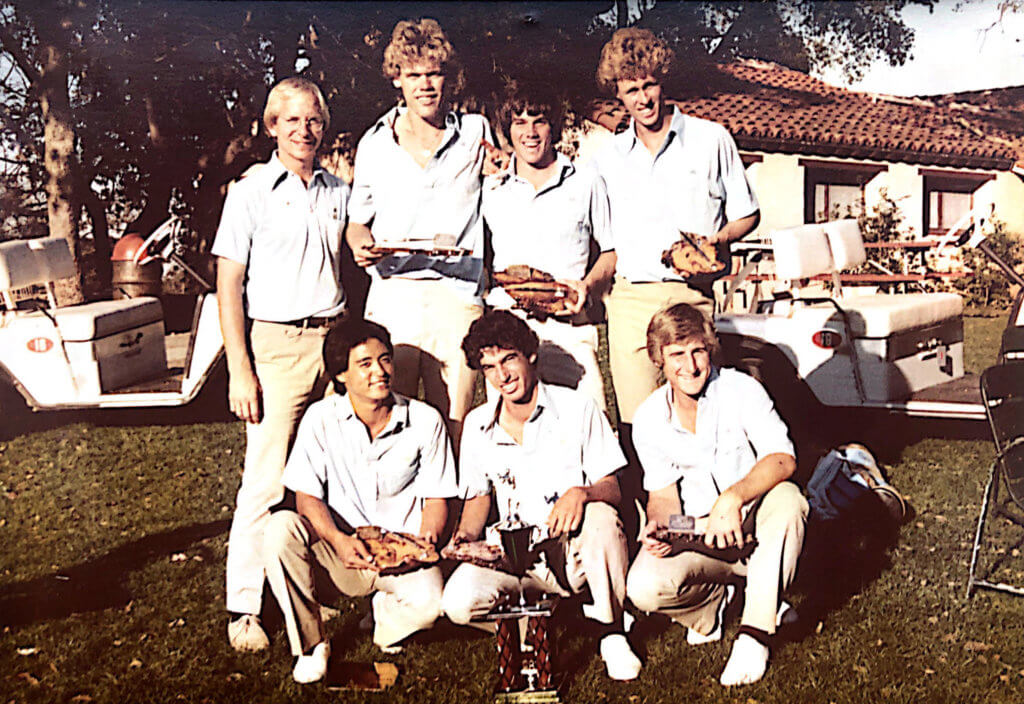
“Jay was the boss and I was in a support role,” Perles said. “I knew his game well, but I wouldn’t say anything about his swing on the golf course unless he asked.
“Jay is such an easy-going guy, I probably had it easier than any other caddie on tour. He liked to do his own yardages and read putts, and that was good for Jay. It kept him in the game.”
Despite their similar backgrounds, they were very different people working together on the course. Delsing played golf and lived his life by feel; Perles was more analytical.
“John has an entirely different personality than I do,” Delsing said. “He’s more into control and structure. I’m a little more on the creative side.”
Perles, who now owns a company that mentors and consults other businesses, believes a caddie’s job is far more than honoring the three “ups” – show up, keep up and shut up. That’s just scratching the surface.
“Structure is a huge piece of being successful in my view,” Perles said of caddying. “I realize structure at first blush turns off a lot of people. But I believe it has to be there for someone to reach their potential.”
It may be as small as having a check-in phone call every day or week, or as invasive as having conversations about all the players’ needs. Does the caddie know when to talk? What to say when the pressure is on? What are the player’s expectations? Does the caddie receive constant feedback on his performance?
Perles realizes it’s easier for today’s caddies – with all the money available – to stay mum and just agree during a bad round for fear of losing the job. But he says that won’t work long term.
“If you’re going to be a ‘yes guy,’ everyone is going to suffer,” Perles said. “A ‘yes person’ in life doesn’t work.”
Perles said he can remember only a couple of times when he and Delsing argued during a round. One instance was at the 1999 Reno-Tahoe Open when Delsing hit a wayward drive on his 17th hole of the second round, a short par 4. Delsing had to play the last two holes in 1 under to make the cut.
“There’s a boulder in front of the ball, a tree behind the boulder and water in front of and behind the green,” Perles said. “He said, ‘What do you think about me hitting a punch 6-iron here?’
“I said, foolishly, ‘I don’t see how that’s going to help.’ Instantly, Jay’s face becomes bright red and he says, ‘Really? What would you do?’
“I told him I would hit a 9-iron into the fairway, hit my third shot to 10 feet, make the putt and birdie the last hole.”
What happens? Delsing pitches out with the 9-iron, hits his third shot to 10 feet and made par. Delsing laughed as they walked off the green, saying, “Nice call, Pearly!”
Delsing birdied the 18th hole to make the cut, by the way.
Of course, one of the reasons their friendship survived the occasional week on the PGA Tour was because it was occasional. Delsing rarely had a caddie work for him for more than two or three years, and he always gave his looper Wednesday off if he wasn’t in the pro-am to keep things fresh.
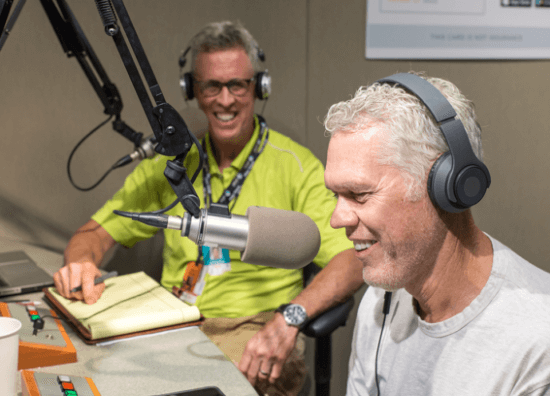
“I liked to have the time by myself,” Delsing said. “John and I never won together, but I had some of my best rounds and finishes with him.”
Perles also liked the part-time nature of their player-caddie relationship for several reason. Not only was a support role a bad match for his type-A personality, but the rigors of the job made it more difficult.
“After we worked together for a couple of weeks, it would start to feel like the beginning of the road traveled,” Perles said. “We knew it was time to take a break.”
******************
More than a year ago, Delsing and Perles started working on another project associated with golf: They co-host a one-hour radio show – “Jay Delsing on Golf” — that airs Sunday mornings on the ESPN station in St. Louis. Once again, Perles is in a support role.
Delsing started transitioning to a role that didn’t include playing golf for a living in the 1990s when he created a hospitality entertainment business. Delsing would use his contacts to line up trips to popular golf courses for groups of people and play with them.
This business tapped into Delsing’s personality. While he wasn’t eligible to play in most pro-ams, Delsing relished the long hours with strangers.
MORE DOLCH: There’s a whole lot more to caddie Lance Ten Broeck than his nickname ‘Last Call’
“The pro-ams were an unbelievable opportunity to meet people,” Delsing said. “Ninety-five percent of my pros in my era despised the pro-am, but I didn’t. I would send them a card afterward and try to stay in touch.”
Delsing got his first break in the media business when Fox Sports took over as the USGA’s network for televising national championships. Play-by-play announcer Joe Buck, who also lives in St. Louis, convinced Delsing to give it a shot.
Delsing was hired by Fox in 2015 and worked on the USGA telecasts for three years. When Delsing’s contract wasn’t renewed, he turned to the medium of radio.
That led to the radio show, which recently surpassed 50,000 downloads.
“The media business was something I was always interested in, but I didn’t pursue it sooner,” Delsing said. “I wish I had.”
The one-hour show isn’t just about golf, though that is the primary focus. Delsing will interview athletes from other sports.
“We want to make it fun,” Delsing said. “We don’t use a lot of statistics – we want people to talk about why golf is important in their lives.”
It’s not often a player and a caddie maintain a good relationship for years afterward, much less decades. It’s a tough business and can put stress on the best friendships, even when it’s not a full-time gig.
Yet Delsing and Perles are back working alongside each other in golf. It’s even prompted them to play some rounds together.
“It would be easy for us to complete each other’s sentence on the show,” Perles said. “It’s been a great friendship.”
Says Delsing, “I’m very lucky to have John in my life. There are not many people who can tell you something that will get your attention. When he gives his opinion, it’s really appreciated and valued. Hopefully, I’m the same way with him.”



